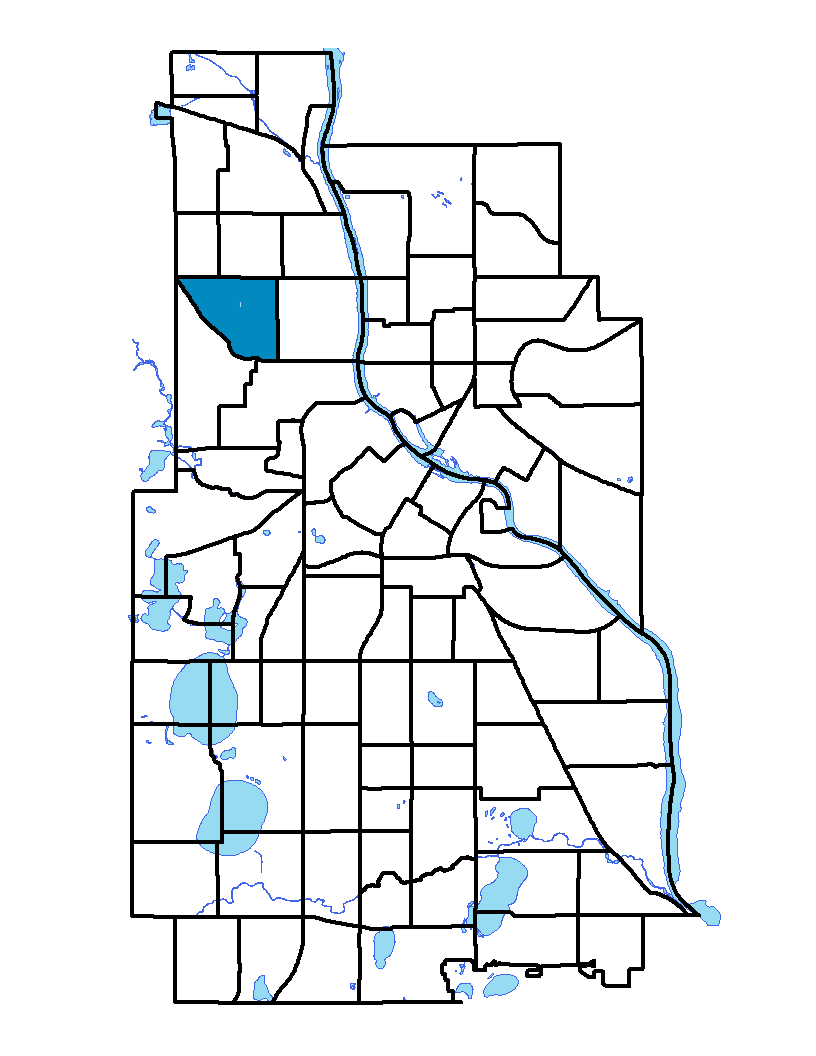"Compare Neighbordhoods" feature is not available in the archived version.
Jordan
Jordan, in Minneapolis' northwest, is bound on the north by Lowry Avenue North, on the east by Emerson Avenue North, on the south and west by West Broadway Avenue. It gets its name from a neighborhood junior high school, which was built in 1922 and named after Minneapolis Public Schools Superintendent Emeritus Charles Morison Jordan. Jordan is mainly a residential neighborhood.
To learn more about the neighborhood association visit: www.jordanmpls.org
Indicator Details
| Indicators | Primary Domain | Indicator Value |
Rank |
Tier |
|---|---|---|---|---|
| High School Graduation Rate | Educational Opportunities | -% | - | Data N/A |
| School Readiness Scores | Educational Opportunities | -% | - | Data N/A |
| Food Desert | Neighborhood Characteristics | -% | - | Data N/A |
| Residential Proximity to Traffic | Environmental Hazards | 0.0% | 1 | Top |
| School Proximity to Traffic | Environmental Hazards | 0.0% | 1 | Top |
| Toxic Releases from Facilities | Environmental Hazards | 0.0% | 1 | Top |
| Age of Housing | Housing | 75.9% | 19 | Top |
| Chronic School Absence | Health Systems and Public Safety | 41.1% | 21 | Top |
| Reading Proficiency | Educational Opportunities | 9.4% | 32 | Middle |
| Walkability | Neighborhood Characteristics | 65 | 38 | Middle |
| Commute Mode Share | Transportation | 32.2% | 38 | Middle |
| Access to Mainstream Financial Services | Economic Health | 24.4% | 45 | Middle |
| Motor Vehicle Collisions | Health Systems and Public Safety | 7.5 | 48 | Middle |
| Household Transportation Costs | Transportation | 17.9% | 50 | Middle |
| Proximity to Brownfield Sites | Environmental Hazards | 8.5% | 52 | Middle |
| Preschool Enrollment | Educational Opportunities | 41.4% | 53 | Middle |
| Transit Accessibility | Transportation | 271.4 | 54 | Middle |
| Pedestrian Connectivity | Transportation | 114.7 | 57 | Middle |
| Offsite Alcohol Outlets | Neighborhood Characteristics | 2 | 61 | Bottom |
| Residential Mobility | Social Cohesion | 71.8% | 63 | Bottom |
| Proximity to Superfund Sites | Environmental Hazards | 52.8% | 64 | Bottom |
| Voter Participation | Social Cohesion | 16.8% | 69 | Bottom |
| Low Birth Weight | Health Systems and Public Safety | 11.6% | 69 | Bottom |
| Business Retention | Economic Health | -1.6% | 70 | Bottom |
| Access to Parks and Open Space | Natural Areas | 1.2% | 72 | Bottom |
| Blood Lead Levels in Children | Housing | 8.7% | 73 | Bottom |
| Travel Time to Work | Employment Opportunities | 24.1 minutes | 73 | Bottom |
| Tree Cover | Natural Areas | 25.6% | 74 | Bottom |
| Adult Educational Attainment | Educational Opportunities | 76.8% | 74 | Bottom |
| Long-Term Unemployment | Employment Opportunities | 8.9% | 75 | Bottom |
| Violent Crime | Health Systems and Public Safety | 103.1 | 76 | Bottom |
| Employment Rate | Employment Opportunities | 44.5% | 81 | Bottom |
| Excessive Housing Cost Burden | Housing | 49.0% | 81 | Bottom |
| Public Assisted Households | Employment Opportunities | 80.9% | 84 | Bottom |
| Preventable Hospitalizations | Health Systems and Public Safety | 17.9 | 84 | Bottom |
| Vacancy Rates | Housing | 20.1% | 85 | Bottom |
| Local Business Vitality | Economic Health | 42.8% | 86 | Bottom |

